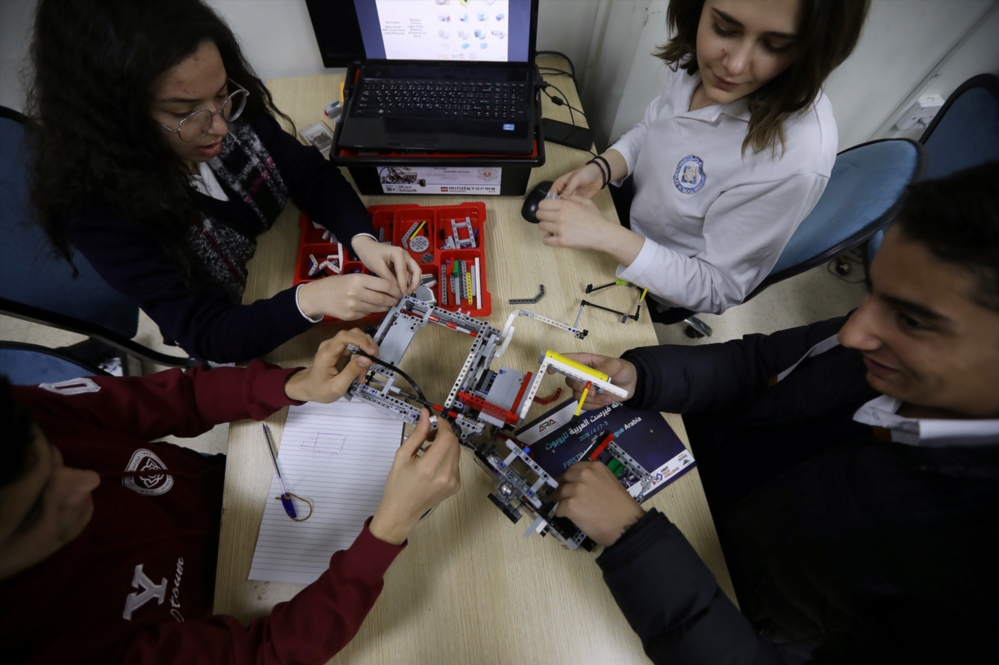Professor Sally Smith, Dean of School of Computing at Edinburgh Napier University, was in South Africa to share how tech can revolutionize education and what Africa can learn.
With the Fourth Industrial Revolution gaining speed, the nature of work and economic activity is set to dramatically change. One woman is on a mission to prepare the education system for such changes.
Professor Sally Smith, the Dean of School of Computing at Edinburgh Napier University, traveled from Scotland to South Africa to share her know-how, as one of the speakers at the Future of the Education Summit in Johannesburg.
Hosted by Africa Business News, the summit brought together thought-leaders and professors from all over the world. Smith met FORBES AFRICA a day before the summit to speak about her experiences in the education industry for 26 years:
READ MORE | OPINION | Technology Is Useful, But Drones Alone Won’t Save Africa’s Elephants
Loading...
1.What trends have you picked up in the sector over the years?
In terms of technology, it has been very fast-moving so the big challenge for universities is conducting research and translating that into useful programs for students when they graduate.
In terms of the kind of trends and developments, we have seen huge growth in areas such as creative computing. There have been developments around designing meaningful interactions with computers, and that’s no longer just [limited to] a desktop computer; that will be your mobile phone, it’ll be augmented reality systems, virtual reality systems and other recent trends like cyber security.
READ MORE |4 Ways To Develop Employment-Ready Graduates
With more of our lives being conducted online, there’s a need to make sure we secure our data security, our identity is secure and businesses as well need to protect themselves. Those have been really interesting ways in which I have seen a big change in recent years.
And the other thing that has changed is there has been a lot of growth in AI. Some of those kinds of machine learning tools are now being put to wider use than ever before by things like self-driving cars. So that’s an area of great interest now to our students and when they graduate to apply these algorithms.
2.What do you think are the challenges in this sector?
One of the things we’ve been disappointed with in much of the western world is how few women are interested in studying computer science and it has been fairly constant at sub-20% of our undergraduate program since I have been in academia. And we have really been unable to make any great inroads into changing that.
3.What differences have you picked up between education in Scotland and South Africa?
Making sure graduates have the right skills to go to work, and part of that is getting work experience and it’s a challenge for all of us to make the case for businesses to take on a student so they can take on relevant work experience before they graduate. Some of the challenges I have seen around are about trying to get those partnerships.
4.How do you see collaborations of universities around the world with the 4th Industrial Revolution?
Yes, I think there are fantastic ways we collaborate over research and a lot of the big funds now are only interested in collaborations where we can draw on the strengths of universities from different countries and I think that the same will be true about teaching.
READ MORE |Is This Technology the Answer to World Hunger?
At the moment, we are competing with each other but if we can put great programs together that draw on the strength of different universities, there’s a future for more collaborative work.
5.How can the private sector help upskill young people?
We’ve introduced a new way in which people can get degree level qualifications in the UK and degree level apprenticeships. Industry will employ someone and they attend university 20% of the time and work towards their degree while they are in work.
So that is a new way to make sure the degree is appropriate for employers and these programs are employer-led so employers are part of designing the program. The other project we have is a digital skills partnership which is where we try and get industry and lecturers to work more closely together on things like developing curriculum.
Loading...
